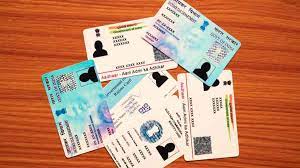A senior citizen became anxious when a message popped up on his mobile on Thursday evening stating that failure to link Pan (Permanent Account Number) with Aadhaar by September 30, 2021, will result in his Pan becoming inoperative.
The consequences of non-linkage of Pan and Aadhaar in the message is correct, but the message stating the deadline of September 30, 2021 has come six days after the central government announced the extension of the deadline to March 31, 2022.
The finance ministry, in a statement on September 17, stated that extension of timelines was on account of hardship faced by the stakeholders because of the pandemic.
Unaware that the senior citizen has got an old message, it left him concerned.
The Telegraph spoke to technical officials of public and private sector banks to understand why this happened and what an account holder could do if he received such a message.
At present, any individual who has registered for SMS alerts from the bank will receive three types of messages — transaction related (like cash withdrawal/OTP), statutory (such as RBI/government advisory) and promotional (such as credit card rewards).
The statutory and promotional messages are drafted by the bank in a predetermined format and then sent to the telecom operators/telemarketing companies for disbursal in bulk. “Since bulk messages are prescheduled, there may be instances that by the time the message is redrafted and approved, already older messages may have been dispatched from the telco end,” said an official of a private sector bank.
According to bank officials, account holders should not click on any links in the messages. Instead they should reach out to branch officials or their relationship managers to verify the authenticity of messages and its content and then take necessary action.
From April 2021, the Telecom Regulatory Authority of India has formulated restrictions and regulations related to broadcasting and bulk SMS services.
The regulations have introduced “scrubbing" whereby SMS contents will be matched with pre-registered templates of banks before the customers receive them. If the content does not match with the template, the message will not be sent.
Bankers said this would significantly improve security and lower fraud.
